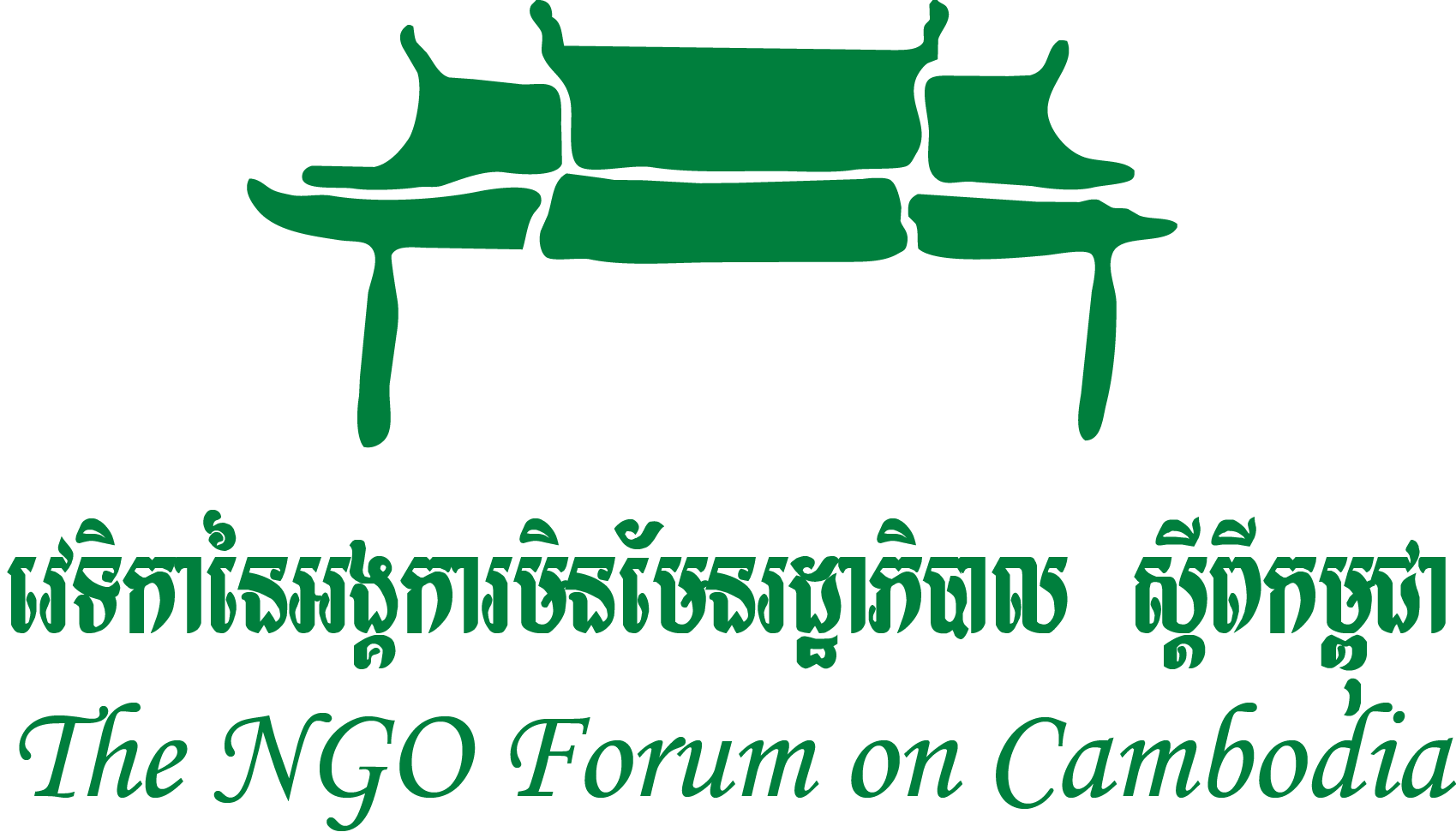Understanding on the Law on Association and NGO in Quarterly Member Meeting
- ngofmail
- Jul 20, 2017
- 4 min read

NGO Forum on Cambodia organized its quarterly member meeting on July 20, 2017 (half day) at Ecumenical Diakonia Centre (PPEDC) Phnom Penh with 142 (42 female) participants chaired by Mr. Norng Sivouthan, a member of NGO Forum Management Committees, country director of HEKS/EPER.
Mr. Norng Sivouthan, gave a warm welcome and thanked to all NGO members, government, and development partners for their participation in the important meeting for the interesting agenda, especially the law on association and NGO. He would inform the meeting objectives to share information with NGO members and discuss on their challenges and needs in order to accomplish the goal as set in the NGOF work plan. Chairman also briefed the key agendas of meeting as following: 1) updating significant progress report of NGOF (May-July); 2) updating on financial management of NGOF (Jan-Jun); 3) updating on implementing of law on association and NGO; 4) role of NGO to comply to the LANGO; 5) election of management committee of NGOF; and 6) collection of inputs for evaluation on final strategic plan of NGOF.

Dr. TEK Vannara, NGOF executive director updated the progress coordinated by NGOF as secretariat to NGO members, networks, and working group in the 3rd quarter of 2017 such as (1) Coordinated members and network members for input on the draft agriculture land law; (2) Coordinated and discussed for inputs on the final draft environment and NRM code; (3) Climate change technical working group was established by National Council for Sustainable Development; (4) MRC accepted for re-discussion on Pak Beng dam; (5) proper compensation to affected community with Sesan II project; and others.
Understanding on the Law on Association and NGOMr. Run Saray, attorney and executive director of LAC, presented about concerns which were requirements in the LANGO as followings: • Registration: All associations and local NGOs had to register with MOI while international NGOs had to register with MoFAIC. At least 3 initiators with age of 18 years up could create association and NGO.• Information: registetered associations and NGOs had to inform to MOI if there were any changes related to director (initiators), office address, financing (account name and account number) and ageements with donors. • Reporting: local NGO had to report of activity and finance to MOI while international NGO had to report to MoFAIC. Where would NGOs registered with Council of Ministers and Ministry of Cult and Religion report to? Did it require CBOs to do so?• Neutral: It would be a good opportunity to have H.E. Chhim Kan to describe about that.Recently, MOI issued information to CSOs on submission of financial and activity report, bank information, change of director and so on to MOI and MEF. As these were still not clear , please MoI gave more explanation. Please also give direction for youth organization.H.E. Chhim Kan, Deputy Director General of General Department of Administration of MOI informed about the obligation of association and NGO as below.• Mission of MOI was to uphold social security, social order, political situation, economy, society, and rule of law with responsible manner.• RGC recognized the interesting participation of CSOs contributing to the development process.• Prior to the promulgation of LANGO, RGC had drafted and consulted for more than 20 years with concern people and international community.• Registered NGOs with Council of Minister had already transferred to MOI, but registered NGOs with Ministry of Cult and Religion were not under authority of MOI. • Registration process was the same as usual before the LANGO was effective. • The law encouraged to association and NGOs to have tax exemption imported equipment and vehicles.• Until now there were 460 association and NGOs had registered again with MOI.• There were 5,101 associations and NGOs registered before the law.• Until now there were 114 NGOs had informed MOI about their bank information. • Article 10 and Article 15, there were 143 NGOs submitted their activity report to MOI.• About 400 NGOs operated on financial business opposite to the law, but they were under processing of register with National Bank of Cambodia.• MOI encouraged for communal land title of IPs and IPs did not require to register according to the LANGO, but they had to follow sub-decree 83.
Mr. Norng Sivouthan coordinated the session with two honorable guest speakers (1) H.E. Chhim Kan, Deputy Director General of General Department of Administration of MOI and (2) Mr. Run Saray, attorney and executive director of LAC on understanding on and role of NGOs to the LANGO such as informing, registration, reporting and being neutral.
Mr. Ouk Vannara, Deputy Executive Director of NGOF facilitated the process of MC election to replace the 2 years end mandate members of MC. As result, Ms. Pok Panhavichetr and Mr. Ngin Saorath won the election with the same numbers of vote 26 of 43 while Ms. Luy Reaksmey got 22 of 43 votes.

The meeting was also provided the opportunity to members and network members of NGOF to provide inputs and recommendations on NGOF’s final program evaluation, which facilitated by independent consultants.
Mr. Norng Sivouthan, chair of the meeting summarized the key achievements of the 3rd quarterly member meeting and appreciated for various achievements coordinated by NGOF. Finally, chair of meeting closed the meeting at 12:00pm.




